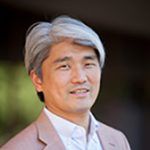A call for transnational citizen-expert engagement in nuclear compensation
By Annelise Riles, Hirokazu Miyazaki | March 11, 2021
Editor’s note: This article is part of a collection of expert commentary on nuclear safety published on the tenth anniversary of the Fukushima disaster, produced in a collaboration between the Project on Managing the Atom at Harvard Kennedy School and the Bulletin.
Nuclear accidents impact publics around the world, as energy consumers and as victims of accidents. Yet nuclear regulation typifies the historically non-democratic expertise of transnational governance. The International Atomic Energy Association (IAEA), which oversees nuclear safeguards agreements and disaster preparedness, has not yet fully engaged citizens’ groups in its governance structures.
Over the past decade since the Fukushima nuclear accident, we have conducted a multinational collaborative study of nuclear compensation schemes, resulting in a report calling for a more democratically legitimate transnational disaster management and compensation process. The renewed global interest in nuclear power in light of climate change concerns, the development of new technologies such as small modular reactors, and the emergence of state-run nuclear export industries targeting developing countries create new policy challenges. As we argue in the report, the transnational framework for liability and compensation, built in a start-up era for nuclear technologies located in a handful of first world nations, is in need of significant updating.
For several decades, multilateral institutions have experimented with engaging non-state actors in international governance, from NGO gatherings on the sidelines of multilateral meetings to digital platforms in the European Union. Yet too often, these attempts have inadvertently created a cadre of “NGO experts” relatively detached from publics at large. The legitimacy of the transnational regulatory regime governing liability and compensation for nuclear accidents now depends on finding new methods of direct participation from citizens around the world.
In the spirit of preparedness for the next large scale nuclear disaster, therefore, we need forums where ordinary citizens from nations with differing histories of nuclear power can engage directly with nuclear experts from both government and industry as well as representatives of international institutions. In this new form of transnational conversation between local citizens and global regulators, each must acknowledge the other’s sphere of legitimate decision-making. These forums hold out the hope that citizens and experts can collaboratively develop workable solutions to intractable problems surrounding nuclear disaster preparedness and compensation that bridge local, regional, and global concerns.
Successful multilateral engagement between citizens and experts will require a specialized methodology. Regulatory questions involve a mix of “expert” issues and decisions that must be determined by citizens in local democratic settings. For example, the actual zone of contamination in nuclear accidents can be determined transnationally by scientists, while the amount of compensation to be paid to evacuees must be a matter of local democratic decision-making. The next great question for the nuclear field, therefore, is how to design such a conversation.
Read more expert commentaries in this collection »
Together, we make the world safer.
The Bulletin elevates expert voices above the noise. But as an independent nonprofit organization, our operations depend on the support of readers like you. Help us continue to deliver quality journalism that holds leaders accountable. Your support of our work at any level is important. In return, we promise our coverage will be understandable, influential, vigilant, solution-oriented, and fair-minded. Together we can make a difference.
Keywords: fukushima10, nuclear accidents, transnational governance
Topics: Nuclear Energy, Nuclear Risk
















